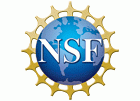Steps to Designing Justice-Focused Assessments in Science

Assessment design using this process is best conducted in teams, where colleagues can work together to clarify learning goals to be assessed, brainstorm design challenges for scenarios that will require application of the disciplinary core ideas of a performance expectation, and review one another’s tasks.
The process of task design, if followed as outlined here, can be expected to take between four and six hours for a small team to develop a single extended task to be used as part of a unit test.
This resource outlines a nine-step process to help teams develop Framework-aligned assessment tasks in science focused on justice-centered phenomena and scenarios. It builds on the thinking about 3D assessment design from STEM Teaching Tool #29 (from March 2020), but has been significantly revised.
Justice-focused assessments are assessments where students use science knowledge and engineering design practices to solve problems involving matters related to the unequal distribution of consequences (e.g., benefits, harms) to communities that result from human-nature interactions and/or unequal voice of communities in matters affecting their thriving and sustainability. Justice-centered assessments are pertinent when assessing performance expectations that require students to engage in engineering practices, because such practices involve developing and testing solutions that address human needs. In addition, justice-centered assessments engage students with the idea of science as a human endeavor, as called for in the Nature of Science connections of the NGSS.
PDF Download
Authors:
By William R. Penuel, Caroline Estrada Carlson, Shannon Wachowski, Debra Freitas, Adrian Alvarez, Robert Hamilton, Amanda Schild, and Ali Raza | January 2022
Edited by Abby Rhinehart and Philip Bell. Thank you to Aneesha Badrinarayan, Katie Van Horne, Sara Cooper, and members of Science State Collaborative on Assessment and Student Standards (SCASS). Original version of this resource by William R. Penuel, Katie Van Horne, and Philip Bell.
ALSO SEE STEM TEACHING TOOLS
- #29 Designing a 3D Assessment
- #30 Integrating Science Practices Into Assessment
- #41 Integrating CCC Into Assessment
- #67 Justice-Centered Phenomena
- #71 Equity Projects
- ACESSE E: Selecting Anchor Phenomena
STEM Teaching Tools content copyright 2014-22 UW Institute for Science + Math Education. All rights reserved.
This site is primarily funded by the National Science Foundation (NSF) through Award #1920249 (previously through Awards #1238253 and #1854059). Opinions expressed are not those of any funding agency.
Work is licensed under a Creative Commons Attribution-ShareAlike 4.0 Unported License. Others may adapt with attribution. Funded by the National Science Foundation (NSF). Opinions expressed are not those of any funding agency.


 Email Feedback
Email Feedback

